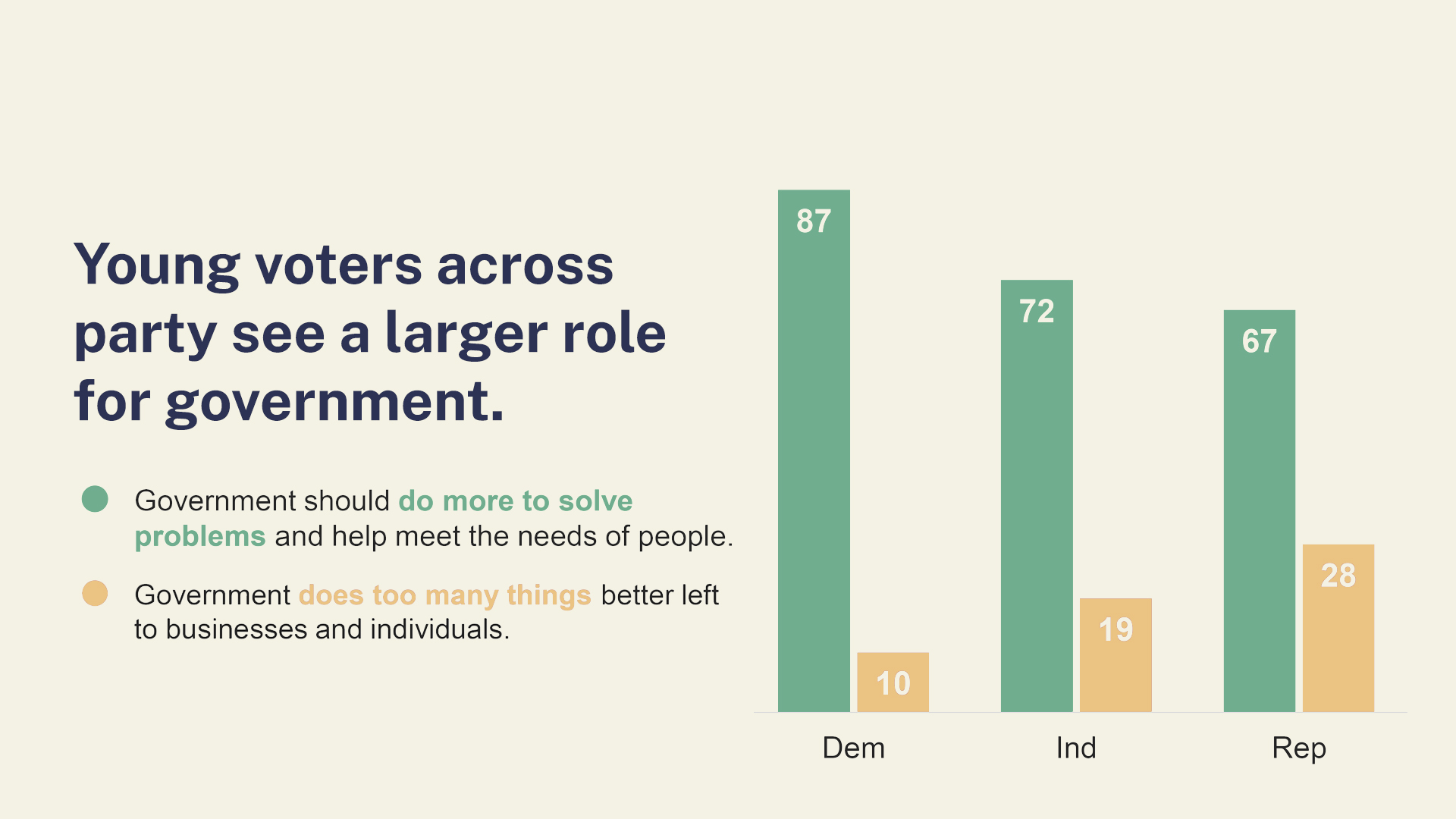Press Release
NEW POLL: Young voters, squeezed by the economy, believe government should do more to fix it
11. 14. 2025

WASHINGTON, D.C. – Recent election results across the country confirmed what many have surmised for months: affordability is the top issue for voters, particularly young voters. A new poll from Economic Security Project (ESP) shows why affordability is so resonant among voters under 40, and illuminates a clear path for candidates looking to secure victories in 2026.
The new poll, conducted with GBAO, surveys voters under 40 to reveal a stark economic outlook for young people across political ideologies—one that has demonstrably worsened during the first year of the Trump Administration.
Key findings include:
- Young people feel pessimistic about the economy overall. 67% say the economy is doing poorly as a whole.
- Young people almost universally report some financial struggle or sacrifice in the past month, with 90% of respondents having made changes to their spending amid financial pressures or rising costs.
- 46% are buying fewer groceries or cheaper brands to save money
- 28% have put off going to the doctor, dentist, or filling prescriptions.
- 42% are worried about their ability to afford rent or a mortgage.
- 70% have taken on debt for short-term relief, using credit cards, Buy Now Pay Later (BNPL), or payday loans to cover essential costs—a uniform trend across Democrats, Republicans, and Independents.
- 62% explicitly do not trust Donald Trump to lower costs. 71% do not trust corporations to lower costs.
- Despite low trust in institutions, a significant majority—76% of Democrats, Republicans, and Independents—believe the government should do more to help people in need.
The new data comes on the heels of ESP’s Affordability Framework, a new tool to help policymakers rethink their approach to economic policy as they seek to address unaffordability. The Framework brings together the best ideas from leading schools of thought—like social insurance, populism, antimonopoly, and abundance to inform policy solutions. Read the full report here.